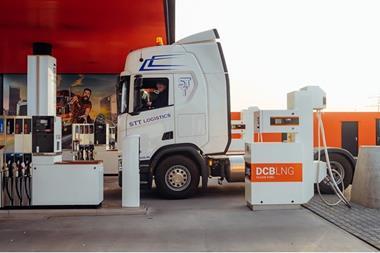It’s probably fair to say that six months ago none of us really believed that as we head into autumn the single topic dominating business in the UK would still be Covid-19 (whatever happened to ’Brexit’?).
Probably only the most pessimistic (or knowledgeable) scientists involved with the subject had any idea back in March how the epidemic might affect this country, and indeed the rest of the world. And of course, the chances are that the effects on ‘business’ or ‘the economy’ weren’t at the forefront of their thinking at that time.
Even today the true extent of the economic damage wreaked by the virus isn’t visible: to a large extent it has been masked so far by the assorted emergency relief measures put in place by the government earlier in the year. Emergency loans, furlough grants and the rest have helped many businesses survive, and kept hundreds of thousands of workers employed – so far. The cost of these support measures is currently estimated as anywhere between £100bn - £200bn (depending on who includes what within the calculation) and rising daily. And yet despite that support we’ve already seen some of the permanent damage done to retailing, particularly on what we used to call the ’High Street’. Just look at the likes of Marks & Spencer, Boots and the John Lewis Partnership announcing permanent store closures and the ensuing thousands of job losses, Debenhams in administration (again) - and you know that ‘retailing’ as we’ve known it is changing beyond recognition.
Of course, looking at a few well-known retail ‘giants’ like those is only part of the devastation wreaked on the High Street. Think of the hospitality sector, and such chains as Bella Italia, Café Rouge, Pizza Express, Carluccio’s, Frankie & Benny’s and Garfunkel’s - between them they’ve permanently closed hundreds of restaurants. And that doesn’t even begin to recognise similar closures among hundreds of purely local pubs and restaurants up and down the country. As if that wasn’t bad enough, look at the travel industry: airlines have already announced thousands of job-losses here in the UK alone, travel agencies have closed and it won’t be long before the knock-on effects are felt at major employers that service that sector. Airports employ thousands of supporting ground staff and if people can’t or won’t fly some of those jobs will go; several UK airports are already said to be depending on further government help to stay open at all, and as the prospects of a return to pre-Covid ‘normality’ recede ever further there has to be some doubt as to whether they’ll still be operating in a year’s time.
All of this has been happening during a period of unprecedented state support. At the moment the government is slowly removing some of that support – such as the Job Retention Scheme which is supposed to taper to a close by the end of October. If those plans go ahead then we’re likely to see much more in the way of business closures and unemployment than anything we’ve seen so far. We say ‘if’ because countries like France, Germany, Italy and Spain have either already extended their equivalent measures, or are expected to announce new versions in the coming weeks, and there’s a reasonable chance that faced with potential unemployment levels not seen since the 1980’s the UK may be forced to do the same.
As far as petrol retailing is concerned - and without wishing to tempt fate - so far this industry has weathered the crisis remarkably well. As far as available figures suggest there have been remarkably few permanent site closures to date. Yes, average fuel volumes are down across the country: as we pointed out last month, depending on what base period is taken for comparison a reasonable estimate is that many sites are only selling around 70% of the volume that they’d expect at this time of year. On the other hand we’re hearing from retailers that they’ve found shop sales are up this year despite the volume falls; as one put it, simply because they stayed open when almost everything else was closed back in the depths of ‘lockdown’ they’ve acquired new customers who’ve become used to the convenience of popping in to their local forecourt rather than driving to a larger shopping centre or hypermarket.
But even these retailers can’t become complacent. As this is written we’re seeing reports that the Financial Conduct Authority is currently investigating over 150 Covid-19 related scams directed at businesses (and those are obviously only the ones they know about and are following-up). Many of these appear to involve scammers pretending to be from HMRC, other government departments or banks, offering to ‘help’ business owners obtain grants or other support – in exchange for the business owners giving them a lot of personal identification information, bank details, etc. It really shouldn’t need saying, but we will do it anyway: Government departments (particularly HMRC) and UK banks do NOT contact you by email with ‘offers’! They may use email to advise you that something is available – but they don’t include links to forms for you to complete and ‘apply’ online.
Which brings us to a more general point. Whether it’s information about available support packages, or just straightforward help with trying to navigate your business finances through the very stormy waters ahead you really should speak to your accountant. They will know what further support funds might be available to you, and although even professionals can sometimes be fooled by a clever scammer, emerging scams tend to be reported on the accountancy ‘grapevine’ very quickly. If you’re looking for more help from your bank, you’ll probably need to provide them with some up-to-date financial information showing exactly how your business has been performing over the last six months or so – and again the best person to check and refine that information before you present it to outsiders is going to be your accountant – and if yours’s isn’t available or is swamped with work already, you know where to call…
ekwgroup.co.uk
01942 816512

































No comments yet